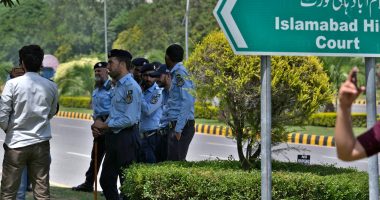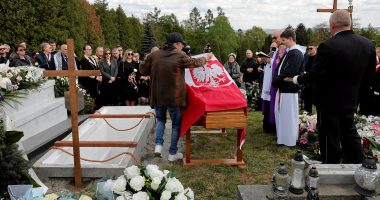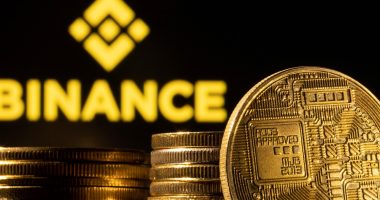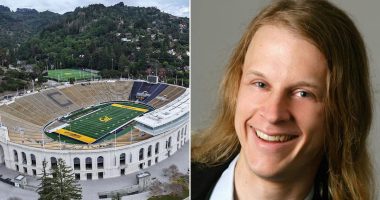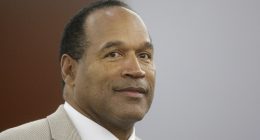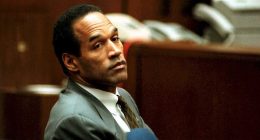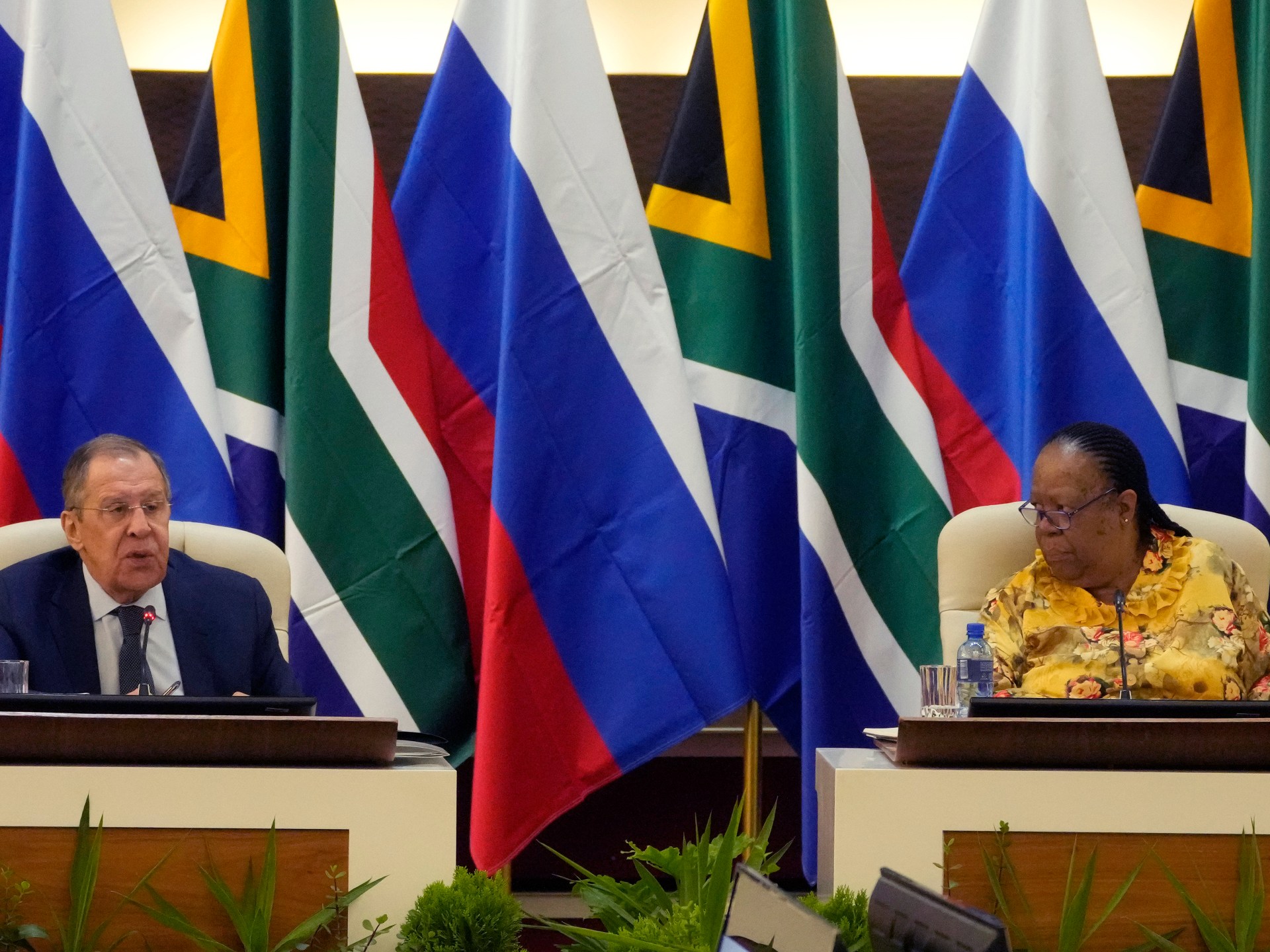
Cape Town, South Africa – The South African foreign service has had a hectic year of navigating several tricky diplomatic endeavours.
It began with South Africa doing joint naval drills with Russia and China in February 2023.
By March, authorities in Pretoria were saddled with a dilemma: execute the International Criminal Court’s warrant for the arrest of Russian President Vladimir Putin over alleged war crimes related to the war in Ukraine when he attended the BRICS Summit that August, or risk being seen as noncommittal to the rule of law. Ultimately Putin’s withdrawal from the summit – after an awkward trip by a few African leaders led by South African President Cyril Ramaphosa to Ukraine and Russia – saved Pretoria from having to decide.
Within months, the US ambassador to South Africa accused it of sending weapons to Russia via the ship Lady R. Not long after, South Africa’s Foreign Minister Naledi Pandor had a call with the chairperson of Hamas’s political bureau, Ismail Haniyeh, followed by a visit to Iran to strengthen relations with it. By December, South Africa had hauled Israel before the International Court of Justice (ICJ), accusing it of genocide in its war in Gaza.
Then this January, Ramaphosa drew criticism when he hosted the leader of the Sudanese paramilitary Rapid Support Forces (RSF), General Mohamed Dagalo, also known as Hemedti, who has been accused of human rights abuses in Sudan, where a war is raging between the RSF and the army.
Critics of Ramaphosa’s government say all of this is proof of Pretoria’s inconsistent foreign policy, arguing that it is quick to scrutinise the human rights records of some countries but appears to turn a blind eye to that of others.
They argue that hosting RSF commander Hemedti and being reluctant to criticise Russia’s invasion of Ukraine have punctured Pretoria’s stated commitment to values of justice and equality in the post-apartheid era.
“South Africa has no principled approach towards these global conflicts,” wrote Greg Mills and Ray Hartley, analysts at Johannesburg-based think-tank the Brenthurst Foundation, in a recent op-ed in local paper the Daily Maverick. “It professes to want to mediate, but it picks and chooses when and which of its principles apply. It is a matter of time before another indiscretion undermines the spin doctoring.”
A complex balancing act?
However, some analysts say such criticisms are steeped in naivety about the country’s foreign policy, which they say is focused first on Africa, and then to ensure a world where no country exerts too much global influence. They argue that any apparent inconsistencies are due to a complex balancing act between these objectives.
Oscar van Heerden, an international relations scholar and author of ‘Consistent or Confused: An Analysis of Post-Apartheid South Africa’s Foreign Policy, is one of them. He says a “complex range of factors”, including historical alliances and economic interests, influence the country’s foreign policy.
“The country is in fact very consistent in its foreign policy in Africa and the world. Our founding father, Nelson Mandela, also reminded the world that your enemies are not my enemies, and I think the country has stayed true to that,” van Heerden told Al Jazeera.
Zwelethu Jolobe, an associate professor of politics at the University of Cape Town, agrees with the seemingly zigzag approach, saying the country is “trying to promote an alternative world order”, due to its enduring belief in a “multipolar society”.
“South Africa knows the world is a complex place … and in order for us to have world peace, multilateral diplomacy is the best way to have international relations and that is at the core of its foreign policy doctrine,” he told Al Jazeera.
Hemedti’s visit in particular has proved to be a thorny issue as fighting between the army and the RSF continues to wreck Sudan. Rights groups including Human Rights Watch have said the “RSF has committed a wide range of horrific abuses including the forced displacement of entire communities and amongst the most egregious abuses against civilians were torture, extrajudicial killings, and mass rapes.”
Against this backdrop, the South African presidency said in a statement that it “welcomed the briefing by Dagalo and the mediation efforts between the RSF and the Sudan Armed Forces in finding lasting peace”. Dagalo, who has also visited to Kenya and Ethiopia, told the media that he had briefed Ramaphosa on the “efforts taken to end this war”.
In response, General Abdel Fattah al-Burhan, the chief of the Sudanese army, criticised Ramaphosa and other leaders for hosting Hemedti.
Still, some say the controversial visit is only the latest case of South Africa getting involved in peace talks on the continent as a nonaligned actor.
For years, South Africa has been active in various peacekeeping missions across the continent including the ongoing United Nations Organization Stabilization Mission in the Democratic Republic of Congo (MONUSCO), to which it has the sixth largest contingent of 62 countries involved. It is also often involved in various mediation efforts including the successful ones in South Sudan and most recently between Ethiopia and rebels in its Tigray region.
Former presidents Mandela and Thabo Mbeki were also respected as continental statesmen who helped bring opposing sides to dialogue over the years. The former helped resolve a dispute between Libya, the United States, and United Kingdom, while his successor was a negotiator during the first civil war in Ivory Coast.
And now, van Heerden says South Africa is once again determined to “play both sides” as the precedents show that it “does not see things in black and white”.
“You can only bring people together in one room when you have built trust over a period,” he said.
Van Heerden also dismissed the view that the country is siding with autocrats. “The world is changing and the world needs to adapt and change,” he said. “We cannot put our eggs in the Western basket; there are new important players like India, China, and Brazil.”
‘The complex nature of foreign policy’
Since the beginning of the Ukraine war, South Africa has been careful not to condemn Russia’s invasion including declining to support a UN resolution on the matter. Multiple analysts have said the long-standing relationship between the ruling African National Congress (ANC) and the former Soviet Union plays a role in this.
And then came Ramaphosa’s peace mission last June – a trip derided domestically by the opposition as “an ego trip” – to meet Putin and Ukrainian President Volodymyr Zelenskyy separately. During their visit, they put forward a 10-point proposal, including de-escalation, the recognition of both countries’ sovereignty, and unimpeded grain exports through the Black Sea. Ukraine rejected the proposal.
South Africa’s approach to the Russia-Ukraine war has confounded many.
“South Africa has consistently failed to explain, in any substantive way, what exactly its doctrine of nonalignment is …,” wrote the analyst Eusebius McKaiser last May. “This sloppy usage of the word ‘nonaligned’ does the idea of neutrality or nonalignment a massive disservice.”
Seven months later, the war is still on. And now South Africa is enmeshed in trying to resolve another war, through its ICJ case against Israel.
Still, some say the efforts to end both wars are commendable, despite the methods being very unlike each other.
“It is part of the complex nature of foreign policy, sometimes it sounds like contradictions … but there is silent diplomacy that is not always in the public domain,” Dirk Kotze, professor of political science at the University of South Africa, told Al Jazeera. “It balances itself out.”
Read More: World News | Entertainment News | Celeb News
Aljazera



